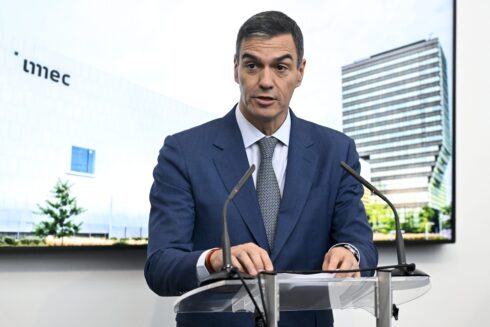Companies should overcome their fear of participating in these processes,” says Lara Campanario, lawyer and founding partner of DAUSS Abogados, insisting that “dismissing the public sector as a potential client closes the door to a long-term working relationship and reputational growth.

August 2023.- The figures related to public contracting in Spain show that government institutions represent an excellent business opportunity. According to data analyzed by the Independent Office for Regulation and Supervision of Contracting OIReScon, the economic value of tenders reached over 100 billion euros in 2022, with a volume of more than 180,000 files.
“Many SMEs are misled by the false belief that only large companies with high turnover participate in public tenders,” explains Lara Campanario, lawyer and founding partner of DAUSS Abogados. However, the expert insists that “dismissing the public sector as a potential client based on myths, without even considering it as an option, closes the door to a long-term working relationship and reputational growth”.
Although public tenders can be challenging, Campanario has no doubt in stating that “both national and international companies must overcome their fear of participating in these processes, and if they have doubts about how to offer their services to the three levels of administration – state, regional, and local – they only need to seek professional advice”.
A transparent process
“It is true that administrative and technical specifications are not always expressed in a straightforward language, especially for foreign companies applying for the first time, which can be confusing”, adds Campanario. To support them, advisory and financing programs have been implemented, along with simplified procedures.
The public sector is making “great efforts to maximize transparency and protect confidentiality,” reveals the lawyer. Although bureaucracy is not always as agile as one would expect, DAUSS acknowledges that “digital management platforms for applications have significantly reduced processing times and the need to go and manage it in person, which is crucial for bidders residing outside of Spain”.
Up-to-date documentation
Another classic hurdle when entering this market is the immense amount of paperwork that bidders must gather. Certificates, insurances, guarantees, deeds… “Demonstrating compliance with the requirements should not discourage companies that have never operated in our country”, says Campanario. In this regard, there is a significant difference in the requirements for bidding that companies within the European Union need to demonstrate compared to those outside.
While the path to procurement is not straightforward, the reward is worth it. “A contract with the government is a guarantee of credibility,” says the lawyer, adding that companies entering this procedure are seen as an example of reliability and solvency. Furthermore, she concludes that “achieving success from the outset within the public sector can lead to contract extensions, which is excellent news for any business”.
About DAUSS
Founded in 2016, DAUSS is a law firm focused on advising national and international clients, especially German-speaking ones. In addition to legal advice, thanks to the extensive experience gained over the years, they offer support services to entrepreneurs with the aim of optimizing market entry and investments in Spain.
DAUSS is led by founding partners Iván Mateo Borge, Nathalie Kühlmann, Lara Campanario and Uri Geigle. Located in Barcelona, with offices also in Madrid, the firm has strong connections with international firms and networks, and extensive experience in providing legal advice to companies and investors.











